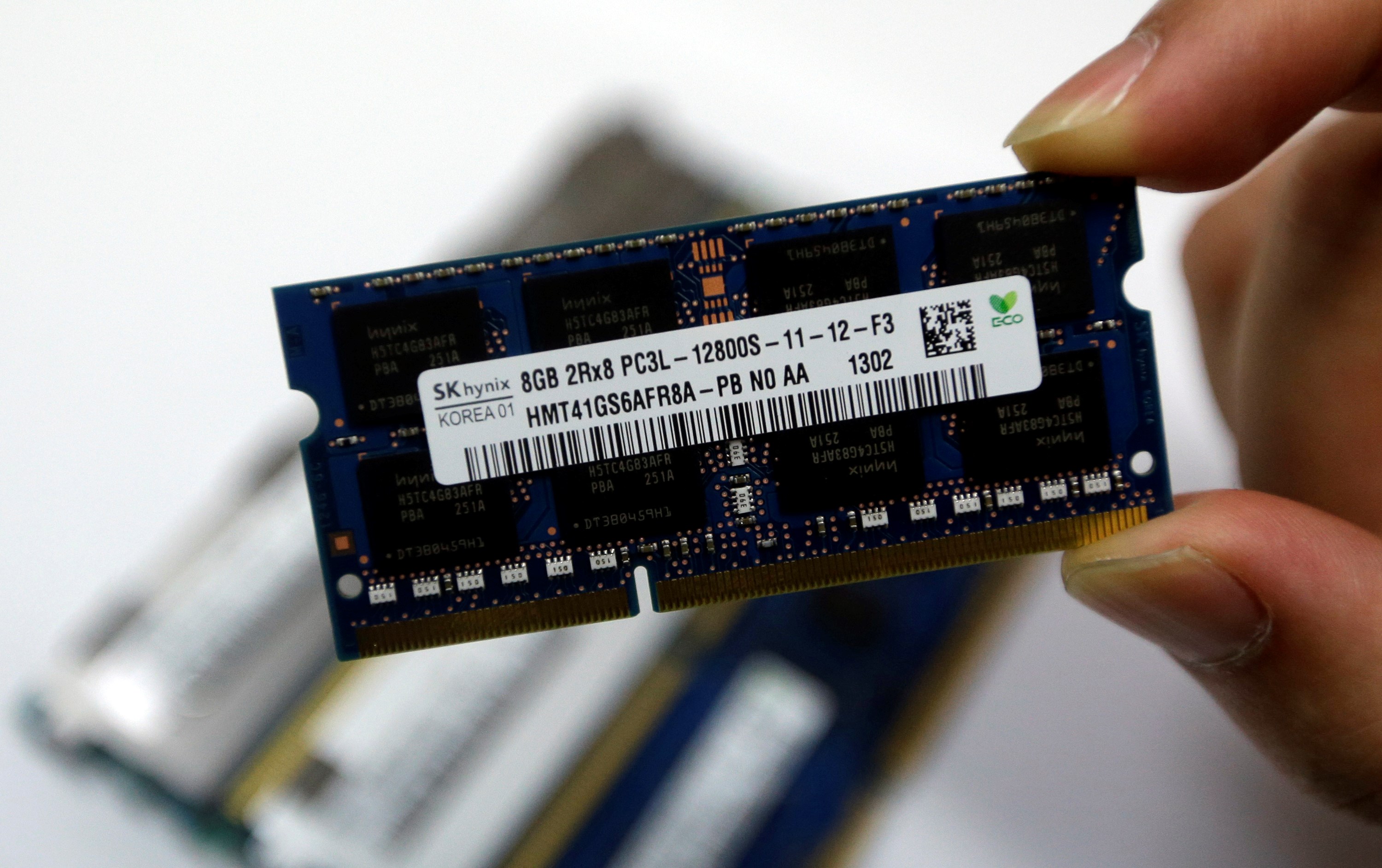S. Korea: Chipmakers' US subsidies toughening conditions
The US federal fund intended to promote advanced chip production in America entails substantial conditions for South Korean chipmakers who voice their concern.
-

SK Hynix Inc.'s DRAM module is shown at its headquarters in Seoul, South Korea, Wednesday, January 30, 2013 (AP).
The stringent requirements disclosed this week for businesses utilizing a $39 billion US federal fund intended to promote advanced chip production in America has prompted concern by South Korean chipmakers.
A section in the Commerce Department's rules released this week for applications for funding under the Chips Act, approved by Congress last year, is of particular concern since it mandates that businesses give the US government a portion of their unanticipated surplus earnings.
South Korean chipmakers like Samsung Electronics and SK Hynix are concerned about the implications as they plan to build plants in the US and still heavily rely on their domestic market. The new subsidies are intended to build a cutting-edge US semiconductor industry as part of efforts to counter China.
Yeo Han-koo, Seoul’s former trade minister, argued that the clause concerning excess profit-sharing was "problematic" and that it was an “unprecedented move charting a new territory that we haven’t seen in recent years.”
“Many companies may cry out on this. It may set a worrisome precedent for other countries who may follow suit,” the former minister noted.
The commerce department said that businesses that received more than $150 million would be required to pay back to the government when their returns exceeded initial predictions by a certain amount.
As chipmakers prepare to submit their applications, precautions have been put in place to guarantee that the subsidy scheme is not exploited. It is worth noting that SK Hynix plans to develop a cutting-edge chip packaging facility in the US, Samsung is building a $17 billion foundry in Taylor, Texas.
“We’re perplexed by these unexpected conditions. We’ve never seen anything like this for state incentives,” said an industry executive. “It is unclear how they will calculate excess profits. They want to take some of our profits when the business is booming but they won’t return our money when the industry is in a downturn. This will be a key point of contention.”
On that note, Yeo explained that explaining "excess profits" is a complex matter which “will give the regulator a huge discretionary power in implementing it, while companies will be incentivized to set the threshold higher."
A law professor at the Seoul National University and an expert in the field of international trade disputes highlighted that "Korean chipmakers’ anguish over their future investment plans,” will now only deepen as “They will be worried that their sensitive R&D and financial information will fall into the hands of a foreign government.”
Read more: Dell technologies aims to phase out Chinese chips by 2024: Reports

 3 Min Read
3 Min Read








